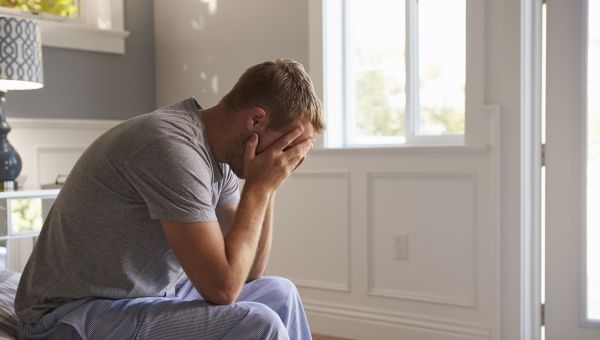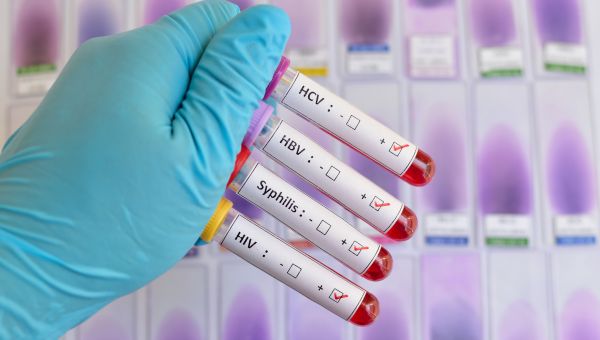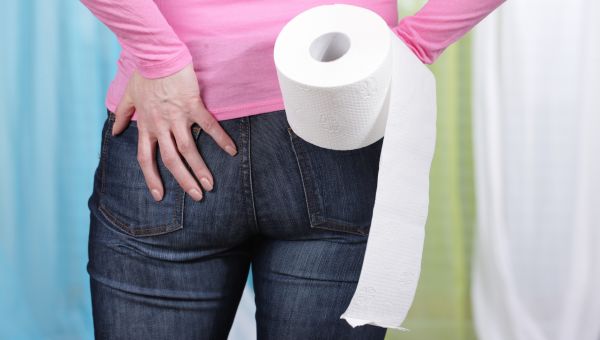7 embarrassing questions people ask their family doctor
You may not want to ask about an itchy anus or odd body smells—but it's best to bring it up.

Your general practitioner (GP), or family doctor, has heard it all. Got an awkward question weighing on your mind? It probably won’t faze them. But if you still haven’t booked your appointment, knowing the embarrassing things other people ask may help you work up the nerve.
Sanjay Jaswani, MD, an internal medicine doctor from LewisGale Medical Center in Roanoke, Virginia, discusses some of the important questions people may have, but hesitate to bring up with their GP.

Why don’t I want sex anymore?
“Women often say, ‘My partner’s still interested in sex, but I’m just not as desirous as I once was. Is there something wrong with me?’” says Dr. Jaswani. And the answer is, sex drive can vary over time for many reasons—most of them non-medical. It can change along with relationship dynamics, your sense of self, your confidence, whether or not you’re in an erotic situation and so much more.
When it comes to medical reasons, possible explanations include:
- Vaginal dryness: This is a common complaint around menopause, says Jaswani. Dryness and irritation related to low estrogen levels can reduce desire.
- Exhaustion: Middle-aged women often balance many responsibilities, such as work, raising children, caring for aging parents and more. As a result, stress and fatigue can reduce libido.
- Depression: Both depression and antidepressant medications can contribute to a low sex drive. Tell your GP if you think your meds are to blame. They may be able to switch your drug or dose.
Medical issues like diabetes, high blood pressure and heart disease could be the cause, as well. That’s why it’s so important to tell your GP about this symptom, even if sex isn’t a topic you’d normally bring up.

Why can’t my partner get an erection?
“This is an incredibly common question among men and their partners,” says Jaswani. “But it may take a few visits before they even mention it. Men might think erectile dysfunction (ED) reflects a loss of masculinity—but that’s not the case.”
Men of all ages can encounter ED, he continues. This issue can be resolved, but it needs to be diagnosed properly. ED can result from a number of issues, such as:
- Medication side effects
- Anxiety or depression
- Relationship troubles
- Tobacco use
Similar to women, trouble between the sheets can be an early red flag for serious health issues like heart disease, diabetes, high blood pressure and others. “If you have trouble getting or keeping an erection, tell your GP so they can do a complete history and physical to determine the cause,” says Jaswani.

Do I need to get tested for STIs?
“People will say, ‘I had unprotected sex years ago and I've never had any signs of a sexually transmitted infection (STI); should I still get tested? Am I just worrying about nothing?" shares Jaswani.
“The answer is a definitive, ‘Yes, you need to get tested,” he says. “A number of STIs like HIV can be transmitted, but then stay dormant in your body without symptoms for years—you just never know. Get tested if you’ve ever had unprotected sex. If there’s even a one percent chance you might have had an exposure, get checked.”
In fact, everyone between ages 13 and 64 should have an HIV screening at least once, he adds. Beyond that, your GP can help determine how often you should get tested for HIV and STIs, depending on your age, gender and sexual activities. Find out about free, confidential testing near you.

Does pulling out work?
“I’m often asked how effective the withdrawal method is,” says Jaswani. “And it’s not very effective at all. Among the general population, it has a failure rate greater than 22 percent.”
Whether it works depends on many factors, including the man’s ability or willpower to “pull out” before ejaculating. It also depends on how much pre-ejaculate he releases. Pre-ejaculate, commonly known as “pre-cum,” is a bodily fluid that men release during sex, but before ejaculating. It can (but doesn’t always) contain healthy sperm. If that sperm comes in contact with an egg, it can result in an unplanned pregnancy.
Even if the pullout method doesn’t lead to pregnancy, it won’t protect against STIs. To help reduce the spread of STIs, condoms should be used from the moment of first genital-to-genital or genital-to-mouth contact. Condoms, plus a reversible, long-term birth control method like an intrauterine device offer the best protection against pregnancy.

Why does my anus itch?
There are many causes of anal itching, from leftover stool, to spicy foods, to allergies and more. It typically clears up within a few days, but if it lasts longer than four weeks, tell your GP so they can determine if you need treatment.
Don’t scratch the area since you could create a wound that may get infected, even if the itching’s caused by something simple. Here are just a few explanations (and possible fixes):
- Antibiotics: Some antibiotics can disrupt the good bacteria in your intestines and around your anus, causing itching. Tell your GP so they may adjust your dose or drug if appropriate.
- Diarrhea: Liquid stool can leak out of your rectum between bathroom visits and irritate your skin. Gently wipe with a damp cloth to keep the area clean. Don’t rub or use soap. Apply unscented talcum powder or clean cotton gauze to the anus to absorb moisture.
- Allergies: Scented toilet paper, soaps and laundry detergents can cause anal itching if you’re allergic to them. Change your hygiene routine one product at a time to identify possible allergens.
Medical issues like skin infections and pinworms can also be to blame. But with the proper diagnosis and treatment, about 90 percent of people find relief from this symptom; so speak up—even if you’re embarrassed.

Do I have an addiction?
We have an enormous opioid epidemic in this country, and there are many factors that play into that, says Jaswani. What’s unfortunate is there’s also a stigma around substance abuse, and even around asking for help.
People who suspect they’ve become dependent on opioids might hesitate to tell their GP. “They might be concerned their GP will see them as a lesser individual or think badly of them in some way,” he explains.
But substance abuse is a medical disorder, just like high blood pressure or heart disease. “People would seek treatment for high blood pressure, but they may not get help when it comes to addiction,” he continues. “They might incorrectly think, ‘Well, the only person who can help me is me; I need to try and cut back on the meds myself.’”
But not only are there treatments that can help, tapering off opioids without medical supervision can cause dangerous withdrawal symptoms. Get support from an addiction specialist near you through Sharecare’s Find a Doctor tool.

How can I smell better down there?
Every vagina has a slight natural odor—and it’s nothing to worry about. But if you develop a new or foul-smelling odor (especially if it’s associated with other symptoms like burning or itching), it could indicate an infection like bacterial vaginosis, so tell your GP or OBGYN.
Otherwise, these simple steps can help ensure everyday freshness:
- Use the right soap: Choose a natural, hypo-allergenic and fragrance-free product. Avoid anti-bacterial soaps, which surprisingly can disrupt the good bacteria in your vagina, allowing bad bacteria and odors to develop.
- Don’t douche: It can alter your vagina’s acidity level, letting infections flourish.
- Wipe from front to back: This will keep stool from getting into your vagina or urethra, which can also cause bad-smelling infections.
- Change your panties at least daily: Cotton panties are best because they allow air to circulate around your vagina, preventing the buildup of moisture and bad bacteria.
- Put perfume on your inner thighs: Rather than directly on your vagina or panties. The distance can help you smell fresh, without causing vaginal irritation.
